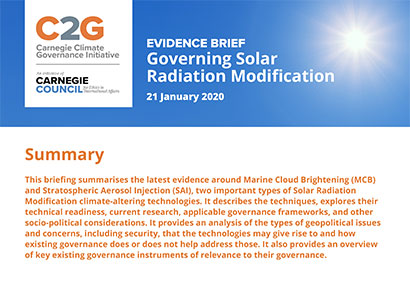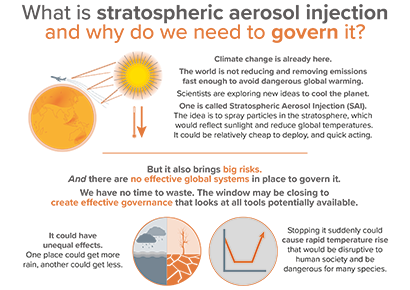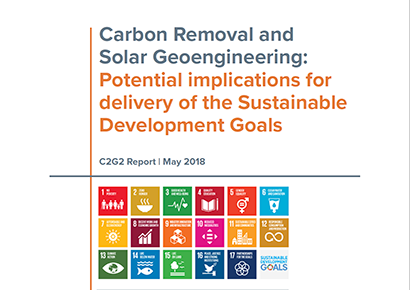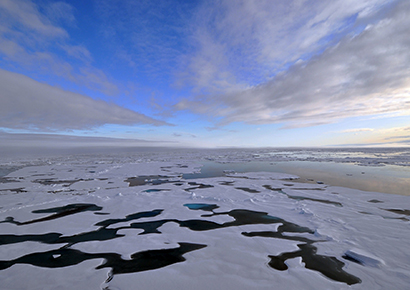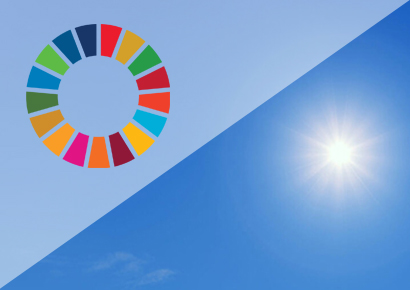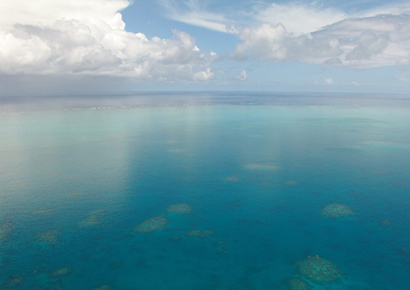C2GLearn
Governance of Stratospheric Aerosol Injection
This topic aims to present a detailed overview of Stratospheric Aerosol Injection (SAI) to an audience interested in understanding the basic principles of SAI, as well as the potential benefits and risks associated with this Solar Radiation Modification (SRM) approach and the underlying governance issues associated with SAI. It seeks to answer the following questions:
- What is SAI and what role could it play in managing climate risk?
- What do we know about the potential risks and benefits associated with this approach?
- What do we know about research, readiness, potential and cost of SAI?
- How do we make an informed decision whether or not we should consider developing or deploying SAI?
- What are some of the potential geopolitical and security implications of SAI?
- What are some of the governance considerations around SAI (whether it is deployed or not)?
- How might some of the governance challenges be considered or addressed in the context of current governance processes and mechanisms?
Webinars
This Webinar features three ten-minute expert overviews on the governance of SAI. It is followed by a forty-five minute moderated Q&A session, during which audience members are invited to submit written questions via the Zoom chat. Speakers include:
Arunabha Ghosh / India
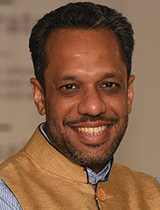
He is lead author of Jobs, Growth and Sustainability: A New Social Contract for India’s Recovery (CEEW, 2020). He is the co-author/editor of four books: The Palgrave Handbook of the International Political Economy of Energy (2016); Energizing India: Towards a Resilient and Equitable Energy System (SAGE, 2016); Human Development and Global Institutions (Routledge, 2016); and Climate Change: A Risk Assessment (FCO, 2015). Arunabha’s essay “Rethink India’s energy strategy” in Nature was selected as one of 2015’s ten most influential essays.
Arunabha advises governments, industry, civil society and international organisations around the world. This has included India’s Prime Minister’s Office, several ministries and state governments. He was invited by France, as a Personnalité d’Avenir, to advise on the COP21 climate negotiations; and also advised extensively on HFC negotiations. He served on the Executive Committee of the India-U.S. PACEsetter Fund. He has been a member of Track II dialogues with ten countries/regions; and formulated the Maharashtra-Guangdong Partnership on Sustainability. He is a member of the Environment Pollution (Prevention & Control) Authority for the National Capital Region.
His monthly columns in the Business Standard (Inflexion Points) and the Hindustan Times (Over The Horizon) are widely read. He has hosted a documentary on water in Africa, featured in National Geographic and Discovery Channel documentaries on energy, and delivered a TED Talk on air quality. He is a World Economic Forum Young Global Leader, member of WEF’s Global Future Council on Energy, and an Asia Society Asia 21 Young Leader. He holds a D.Phil. from Oxford and topped Economics from St. Stephen’s College, Delhi.
Douglas MacMartin / United States of America
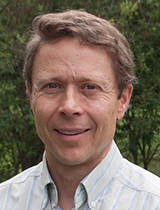
Ina Möller / Germany
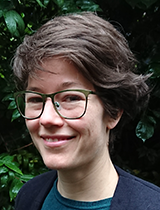
Ina has published scientific articles and book chapters with leading journals and publishers, including Global Environmental Politics, Environmental Politics and Cambridge University Press. She is a research fellow of the Earth System Governance network, where she volunteers as co-editor of the network’s early career newsletter and contributes to the network’s working group on new technologies.
Ina has a PhD in Political Science and an MSc in Environmental Studies from Lund University in Sweden, as well as BA in Political Science and Public Administration from Konstanz University in Germany. She has worked as a research assistant for the International Project Office of the Earth System Governance network and for the Policy and Partnership Office of the United Nations Environment Programme (UNEP) in Brussels.
Ina is interested in collaborating with both scientific and public policy partners on questions related to climate geoengineering and global climate governance in general.
Moderator: Paul Rouse / United Kingdom
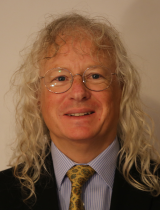
Rouse has a record of accomplishment in taking research evidence into the government policy arena, advising key actors on a wide range of issues from climate change adaptation and geoengineering, to enhancing STEM skills within schools. Internationally, he worked with the Belmont Forum, Future Earth and was an EU Framework Programme National Contact.
Most recently, Rouse has been working with the UK Research & Innovation, taking a particular interest in enhancing ethical thinking and responsible innovation approaches within engineering.
He has postgraduate and professional qualifications and a MA and PhD. Rouse is a Visiting Fellow in Politics and International Relations at the University of Southampton and a Fellow of the Royal Society of Arts.
Introduction
Presentations
Slide presentations
- Douglas MacMartin Situating Stratospheric Aerosol Injection (SAI) in the broader conversation on Solar Radiation Modification (SRM) [pdf]
- Arunabha Ghosh Governance of Stratospheric Aerosol Injection: Potential benefits, risks, and unknowns [pdf]
- Ina Möller Governance of Stratospheric Aerosol Injection [pdf]
Q&A (Webinar 1)
Q&A (Webinar 2)
Campfire Chat
This Campfire Chat aimed to provide insights into diverse viewpoints on the governance of SAI (presented in the webinar above), in a relatively informal, moderated, semi-structured discussion between experts. Audience members were invited to suggest topics via the Zoom chat. Guests included:
Ana Maria Kleymeyer / Argentina & United States America
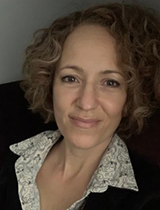
She was a Senior Adviser at International Centre for Trade and Sustainable Development, providing independent consultancy for governments, non-governmental and intergovernmental organizations in the areas of environmental policy development and implementation. She was Chief International Advisor to the Secretary and Head of the Office of international Affairs of the Secretariat of Environment and Sustainable Development of Argentina, Senior Advisor and Counsellor to the Secretary of State for Environment and Sustainable Development of Argentina, Legal Consultant at the World Bank Institute for the Water and Environmental Governance Programs, Legal Fellow at the International Network for Compliance and Enforcement (INECE), Dean’s Fellow Legal Research Assistant, Washington College of Law, Legal Research Assistant for the NKL Law Group, and Program Officer at the Fundacion Futuro Latinoamericano (FFLA) in Ecuador.
Ms Kleymeyer was awarded with the United States Environmental Protection Agency Ozone Award for Climate Protection in 2008 and her international expertise has been recognised by the Montreal Protocol Who’s Who (2008). She is a citizen of the United States America.
Andy Parker / United Kingdom
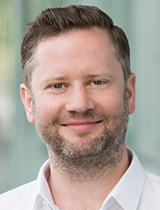
Oliver Morton / United Kingdom
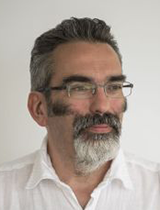
Moderator: Janos Pasztor / Hungary & Switzerland
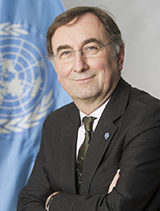
He has four decades of work experience in the areas of energy, environment, climate change, and sustainable development. Before taking up his current assignment he was UN Assistant Secretary-General for Climate Change in New York under Secretary-General Ban Ki-moon.
Earlier, he was Acting Executive Director for Conservation (2014), and Policy and Science Director (2012-2014), at WWF International. He directed the UNSG’s Climate Change Support Team (2008-2010) and later was Executive Secretary of the UNSG’s High-level Panel on Global Sustainability (2010-2012). In 2007 he directed the Geneva-based UN Environment Management Group (EMG). During 1993-2006 he worked and over time held many responsibilities at the Climate Change Secretariat (UNFCCC), initially in Geneva and later in Bonn.
His other assignments included: the Secretariat of the UN Conference on Environment and Development (Earth Summit ’92); Stockholm Environment Institute; United Nations Environment Programme (UNEP); Secretariat of the World Commission on Environment and Development (Brundtland Commission); the Beijer Institute; and the World Council of Churches.
He has BSc and MSc degrees from the Massachusetts Institute of Technology (MIT).
C2G strives to achieve a diversity of views and backgrounds across all its events. To that end, it is always open to feedback and suggestions regarding future participants and topics, to ensure a range of perspectives by sector, gender, race, geography, age and other dimensions. It will not always achieve the necessary diversity in all circumstances due to issues of availability and familiarity, but aims over time to expand the range of contributors able to address its issues, subject to the broad principles outlined in its mission statement.
